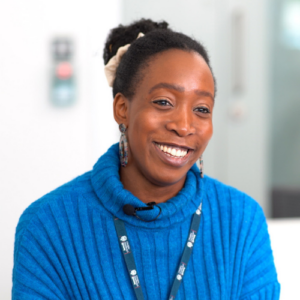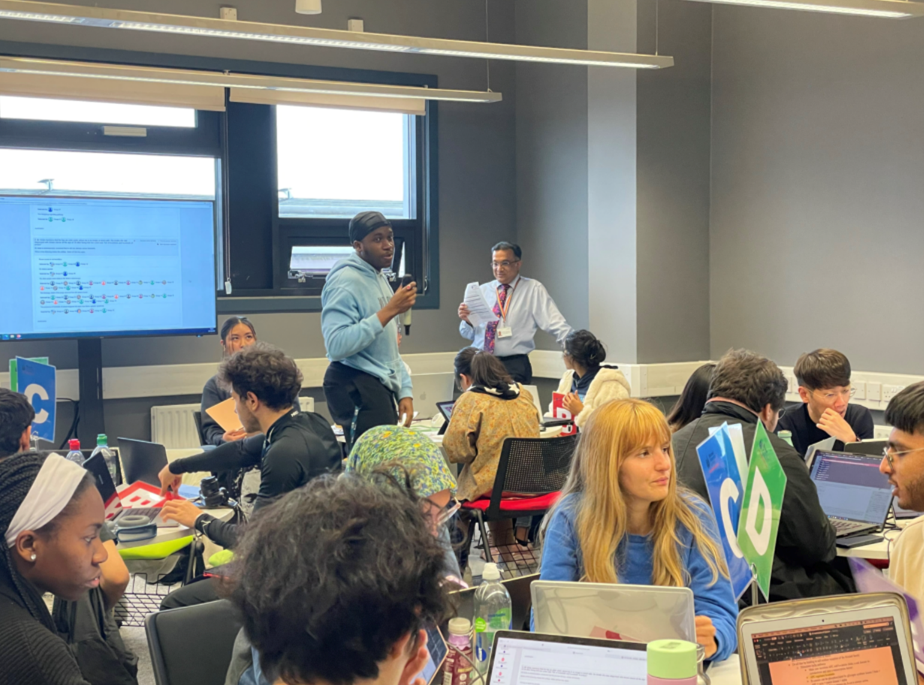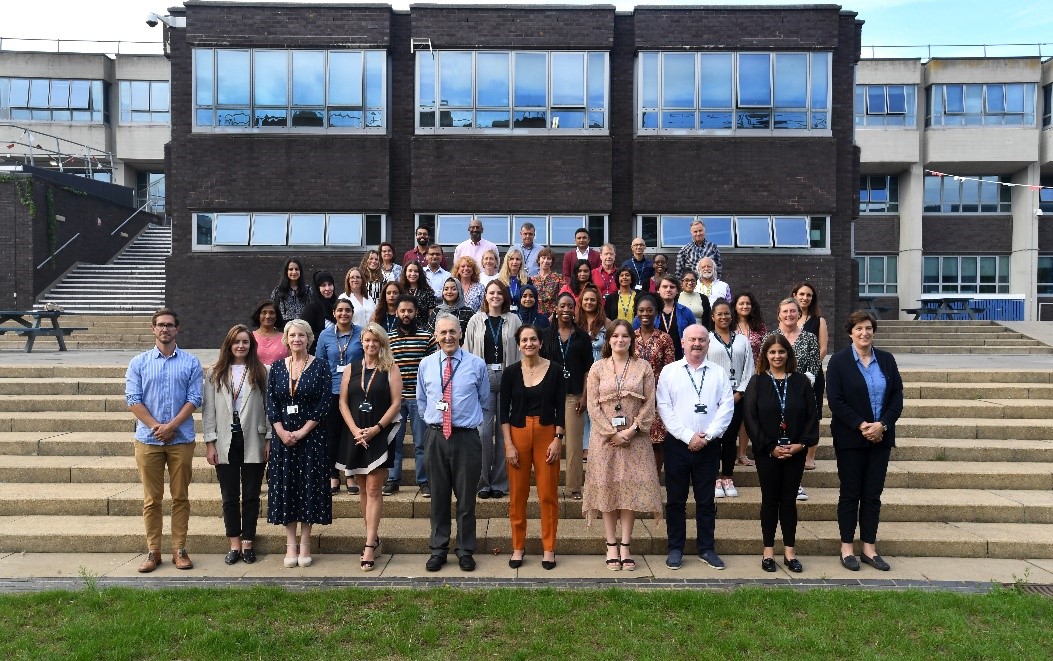
Chinedu Agwu, Brunel Medical School, Brunel University London
Team based learning – a modern approach to physiology education
Historically physiology teaching has been approached using lectures, tutorials and complementary lab practicals to support learning. Rather than using traditional didactic lectures the main teaching pedagogy adopted in our programme is team-based learning (TBL), in which students learn in teams and scientists, alongside clinicians, teach in teams combining their diverse expertise.
I facilitate about 100 medical students per class. TBL is an evidence-based collaborative teaching strategy designed around modules that are taught in a three-step cycle: preparation; in-class readiness assurance testing; and application-focused exercise with immediate feedback from the content expert (Parmelee et al., 2012). TBL has been argued to incorporate the main elements of constructivist learning (Svinicki 2004 and Kaufman 2003) but also promote retrieval practice, peer elaboration, feedback, and transfer (Schmidt et al. 2019).
Teaching physiology using TBL in Brunel Medical School allows students to control their own education, and increases content learning, skill development and retention. Other educators have also adopted the method (Persky and Pollack. 2011, Simonson et al., 2014, Kibble et al., 2016 and Cunningham et al., 2022). TBL encourages deep, meaningful discussion on physiological learning concepts and enables students to connect key concepts with real-world application. It also provides an opportunity for peer-to-peer and whole class interaction, creating a dynamic supportive environment.
Stimulating student learning
For students the challenge is to be immersed in a completely new way of learning which puts them in charge of their learning, requiring them to be actively engaged during class and work collaboratively with their peers. Although they may find this approach difficult to grasp at first, these challenges are also stimulating. Regarding equality, diversity and inclusion, the team aspect of TBL builds on the strength of the team as a whole to promote learning and reasonable adjustments are incorporated to the in-class readiness assurance testing where necessary.
Currently, TBL is not commonly used in colleges or secondary schools and requires commitment from staff to engage students to become active learners and to develop strategies and discipline for independent learning. It took some time for our diverse cohort of students to adapt, but now they are enthusiastic converts to this approach.

How COVID-19 has impacted physiology teaching
There were various changes to teaching that stemmed from the COVID-19 pandemic, such as more online resources, recorded lectures and blended learning. While not in the medical school, other colleagues in biosciences have implemented online practical sessions on Zoom using breakout rooms with teachers visiting breakout rooms to facilitate discussions.
During the return to campus period there were some colleagues in other universities who carried out TBL using a teaching approach called HyFlex, offering maximum flexibility to learners who chose whether to study in-person, synchronous online or asynchronously on a session-by-session basis (Betty 2007, Betty 2019, Raman et al. 2021 and Steve Cayzer). This approach catered to in-person teaching but also to students who had international travel restrictions/health issues/anxiety also.
During COVID-19, and even now, educators across the country were presented with various challenges to online-teaching such as
• mastering concise delivery with videos lasting no more than 30 minutes
• quality checking captions to check for accuracy
• audio and Technology challenges
• student online attendance and participation
• monitoring TBL team dynamics is harder online compared to in-person
Main areas of support for early career lecturers
As a newly appointed education academic with a background in basic science research, I have found it useful to be a part of forums and networks where I learn how to plan and conduct pedagogical research in physiology/biosciences and to engage in scholarly activity. I encourage early lecturers to become Fellows of the Higher Education Academy, as this demonstrates their personal commitment to professional development in learning and teaching, and to lifelong learning in higher education. Furthermore, they will benefit from an academic mentor to support them along their career journey.
Barriers lecturers can face
Some barriers I have noticed in academia for physiology lecturers, and other disciplines, are the lack of role models, especially those from BAME backgrounds. It is also difficult to establish clear development plans for progression to senior leadership positions. Furthermore, time for scholarly activity and public engagement can be challenging, since the teaching timetable and administration duties can make it difficult to commit time to other activities.
Through my previous role, working here at Brunel, and discussing with other lecturers in physiology, I am aware that physiology is taught in a variety of ways, usually in the classroom setting. However, to promote experiential learning and help students connect theoretical knowledge and real-world application the use of patient simulation and augmented reality technologies could be embedded in the curriculum, providing opportunities for realistic interactions with body systems, both in health and disease. One example of this is The use of simulation as a novel experiential learning module in undergraduate science pathophysiology education | Advances in Physiology Education. Additionally, I think there would be value in highlighting different career paths which a physiologist could follow, such as clinician, sports scientist, science communicator or researcher in pharmaceutical industry. This could be embedded in teaching, using a case-based approach.
If you are an educator interested in learning how to implement TBL in your teaching practice, or an educator with established expertise in TBL interested in sharing your practice please contact chinedu.agwu@brunel.ac.uk


